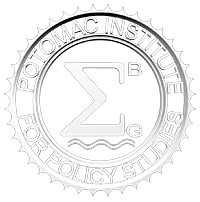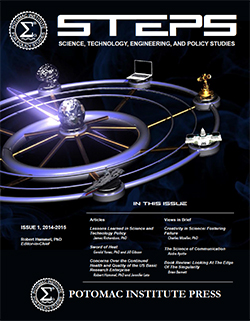From The CEO
- Details
- Published: Monday, 04 March 2024 08:29
- Written by STEPS
- Hits: 12436
Jennifer Buss, PhD

Publications in the Potomac Institute’s journal STEPS are where we elevate ongoing discussions of issues of science and technology policy. We continue to see rapid advances in technologies and continuing scientific breakthroughs, both in the US and globally. This environment is challenging US national policies to stay current, relevant, and responsive to the needs for security and economic wellbeing. Articles in STEPS are intended to present big ideas to address complex issues impacted by the changing nature of science and technology. These articles are derived from discussions generated by our programs, education, and courses, or from ideas suggested by any of our staff or affiliates. We are a think tank, after all, and STEPS is one avenue to document our academic and philosophical debates. We pride ourselves on the diversity of inputs, combining expertise related to the march of science and technology with business acumen and government experience, as brought by visitors, interns, Board of Regents, Senior Fellows, Associates, and others that contribute to the life of the Institute.
I hope you find the ideas expressed in the articles in this issue stimulating and impactful. We welcome feedback and your engagement with the work of the Potomac Institute for Policy Studies.
Jennifer Buss, PhD
Chief Executive Officer, Potomac Institute
This email address is being protected from spambots. You need JavaScript enabled to view it.



